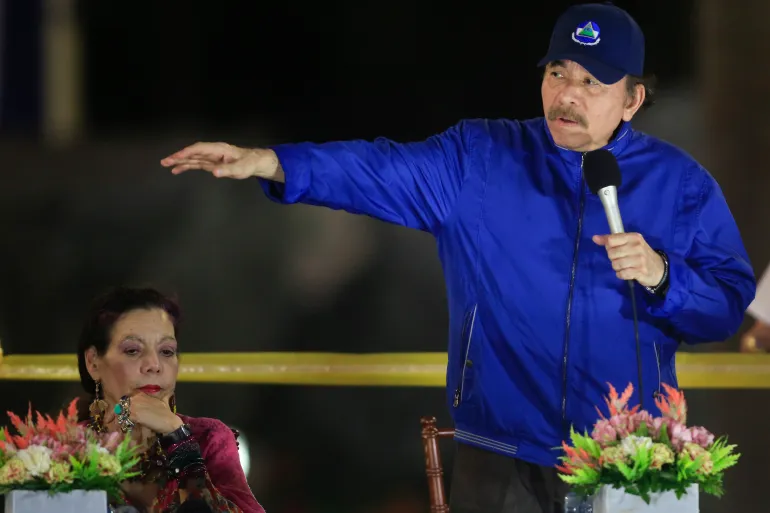The United States Sanctions Nicaragua’s Attorney General for Alleged Role in Political Persecution
The US has imposed sanctions on Wendy Carolina Morales Urbina, Nicaragua’s attorney general since 2019, citing her involvement in what they describe as the government’s “unjust persecution of political prisoners and civil society.” According to Brian Nelson, the US Department of the Treasury’s undersecretary for terrorism and financial intelligence, Morales Urbina has allegedly used her position to facilitate a coordinated effort to stifle dissent by unlawfully seizing property from government opponents.
The Treasury Department highlighted Morales Urbina’s leadership in the confiscation of property from 222 political prisoners who were deported to the US in 2023 and had their Nicaraguan citizenship revoked.
As part of the sanctions, any assets or interests held by Morales Urbina in the US will be blocked, and transactions with her will be prohibited.
ALSO READ: Taiwanese University Student Incarcerated After Unusual $1.3 Million Insurance Claim Attempt
Additionally, the attorney general is accused of supporting the suppression of peaceful opposition members in Nicaragua by President Daniel Ortega and Vice President Rosario Murillo, as stated by US Department of State spokesperson Mathew Miller.
“We will continue to act against anti-democratic actors and human rights abusers,” he added in a post on X.
The U.S. is sanctioning Nicaragua’s Attorney General Wendy Carolina Morales Urbina for enabling Ortega-Murillo’s oppression of the Nicaraguan people. We will continue to act against anti-democratic actors and human rights abusers.
— Matthew Miller (@StateDeptSpox) March 21, 2024
Last year, Ortega’s administration revoked the citizenship of 300 individuals on charges of “terrorism.” This group included 222 political detainees, including prominent opposition leaders and student activists, who were deported to the US following negotiations but were subsequently unable to return and were forced into exile after a law was enacted that stripped them of their citizenship.
The US has been critical of Ortega, a former Marxist insurgent, since he led a revolution that ousted a government supported by the US more than four decades ago. However, Nicaragua’s increasing human rights violations under his administration have further isolated the country from much of the Western world.
According to the Treasury Department, Morales Urbina played a significant role in formulating policies that labeled Nicaraguan opposition members as “terrorists” and restricted their access to financial resources through an “anti-terrorism” legislation.
Previously, the State Department had placed Morales Urbina on a corruption blacklist that prohibits her from entering the US.
Ortega and Murillo, along with numerous other officials including judges, are already subject to severe US sanctions.
Ortega initially governed Nicaragua with popular leftist policies from 1979 to 1990. Upon returning to power in 2007, he progressively consolidated control over state institutions, cracking down on dissenters, including prominent members of the Catholic Church.
On April 18, 2018, more than 300 individuals lost their lives during protests against austerity measures and cuts to social security, with the government responding forcefully.

For comments, Feedback and Opinions do get in touch with our editor on WhatsApp: +44 7949 297606.


